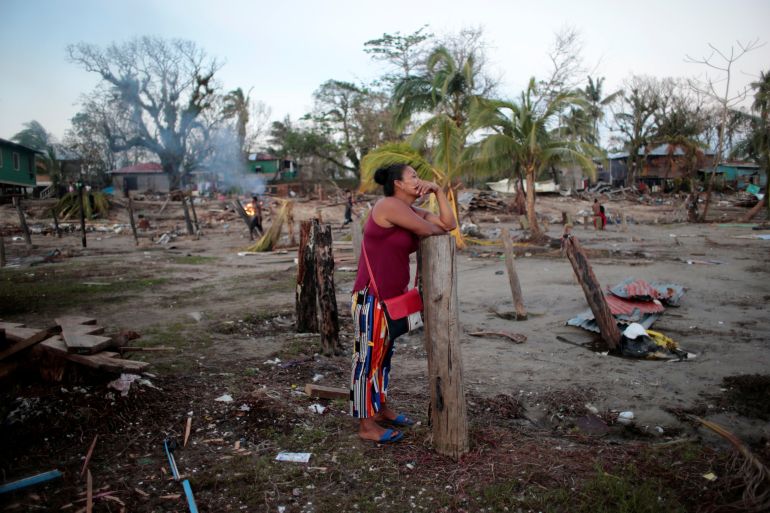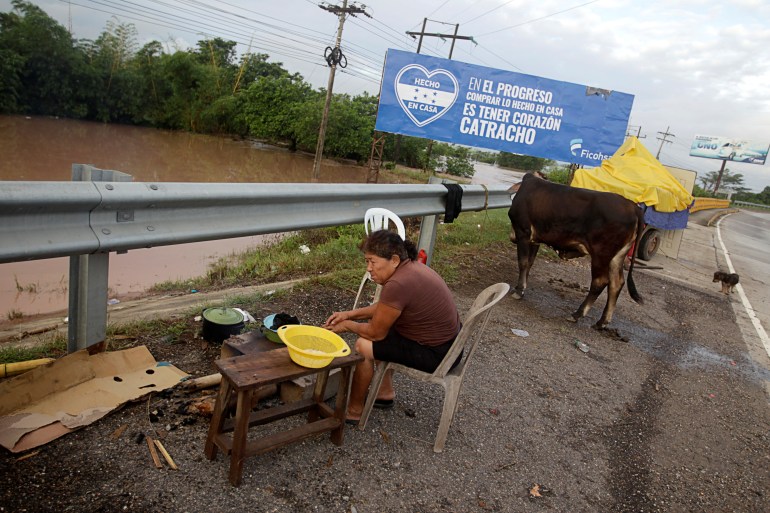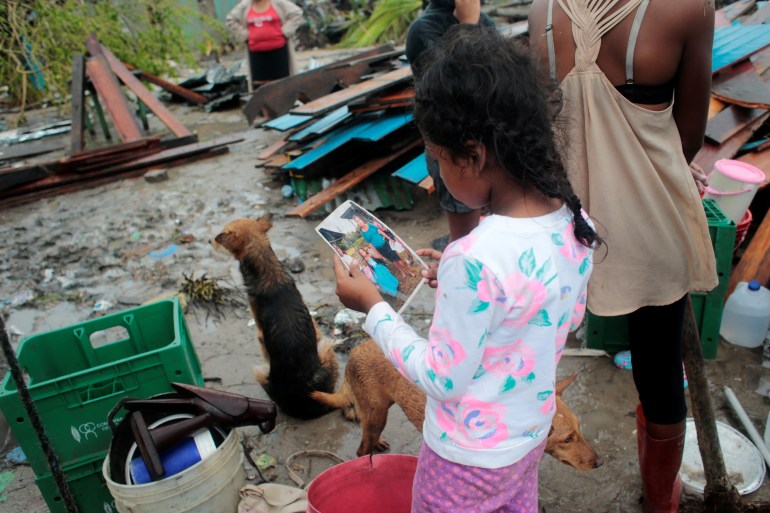Over 400,000 need urgent aid in Central America: Rights group
Some 140,000 homes were destroyed by storms Eta and Iota and 330,000 people remain cut off from emergency assistance.

More than 400,000 people in Honduras and Guatemala are in urgent need of humanitarian aid, a refugee rights group said on Wednesday, over a month after two major tropical storms inflicted widespread devastation on the two Central American countries.
In a news release citing new United Nations data, the Norwegian Refugee Council (NRC) said 140,000 homes were destroyed by deadly storms Eta and Iota and 330,000 people have been cut off from emergency assistance as a result of damaged roads and communication systems in Honduras.
Keep reading
list of 3 items‘Everything’s been destroyed’: Iota hits Providencia island
Hurricane Iota roars onto Nicaragua as 2nd blow in 2 weeks
“The situation is utterly dire,” Dominika Arseniuk, the NRC’s Country Director for Central America and Colombia said in a news release. “Entire communities have been cut off by floods and landslides. Hundreds of thousands of people are yet to receive humanitarian assistance, thousands are sleeping on the streets and under bridges.”

Eta and Iota killed more than 200 people in Central America, according to news reports, and caused heavy damage to infrastructure and homes in countries already battling poverty and the effects of the coronavirus pandemic.
Even before the storms hit, 5.2 million people were in need of humanitarian assistance in Honduras, El Salvador and Guatemala, according to United Nations Office for the Coordination of Humanitarian Affairs (OCHA), citing chronic poverty, gang violence and climate change.
More recently, coronavirus lockdowns have devastated Central American economies and pushed already underfunded health systems to the brink.
In San Pedro Sula, one of the largest cities in Honduras, the NRC says hundreds of displaced families have been staying in improvised shelters. Others have been sleeping in streets and few have access to face masks, soap or clean water – critical in preventing the spread of COVID-19.

Marlon, a 32-year-old man who fled the hurricanes with his pregnant wife and one-year-old daughter, told the NRC that his family had lost their home and most of their belongings in the recent floods.
“We slept outside a building without having any food. We managed to bring some clothes for my daughter, but my wife and myself only had what we were wearing,” he said. “That first night, the rain poured down on us and we have been living on the streets since then.”
The NRC – along with 12 other international organisations, according to the news release – has urged the UN to develop a funding plan to boost coordinated humanitarian response efforts for the region.
“This region has been completely neglected by the international community,” Arseniuk said. “It has one of the highest levels of people leaving and seeking asylum in the world. The number of violent crime-related deaths is higher than in many of the world’s worst war zones. And it is one of the most affected by extreme weather events, as we’ve seen this year,” she added.
“What more does it take for the humanitarian community to step up?” she asked.